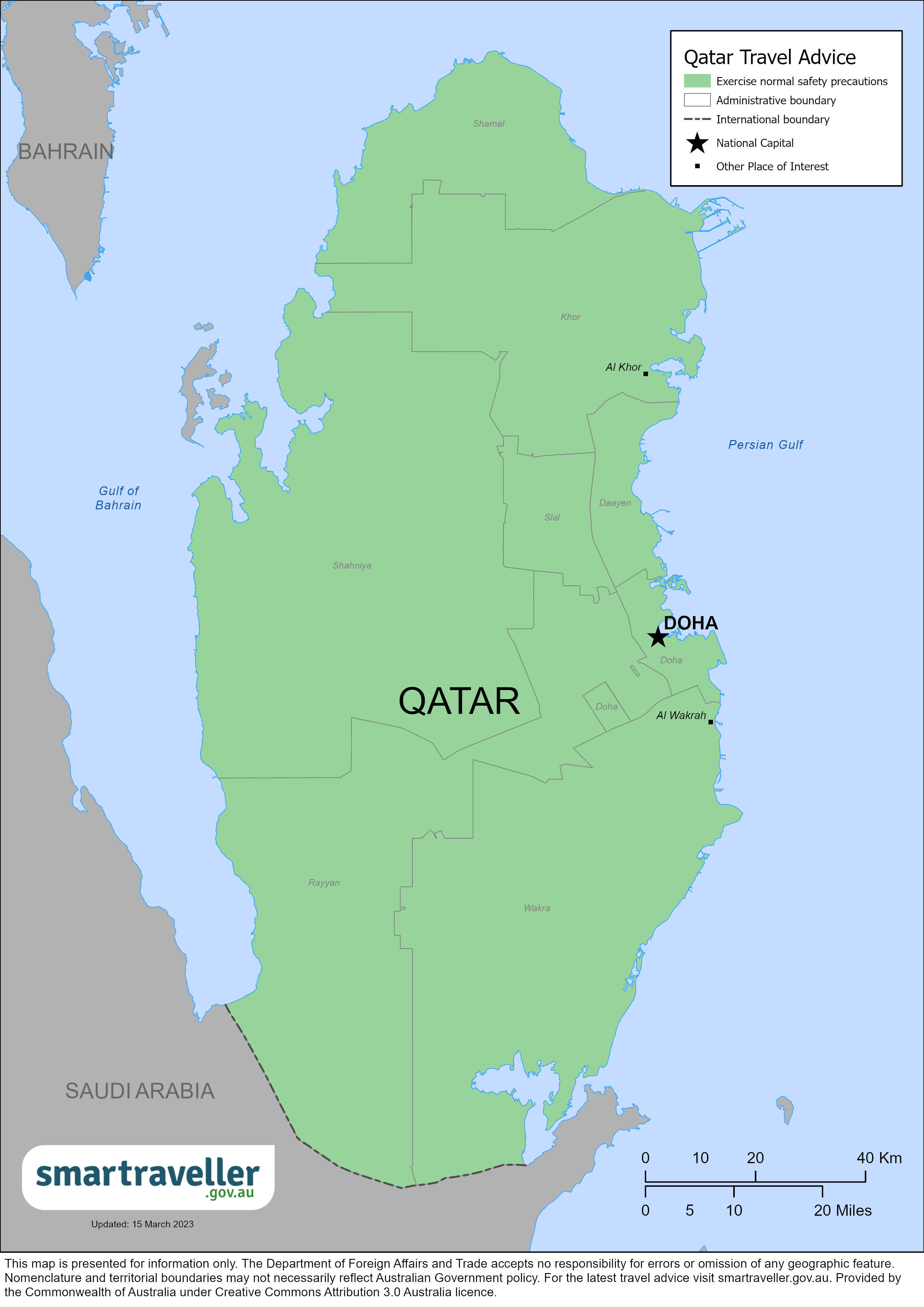Driving permit
You can drive in Qatar with:
- a valid Australian driver’s licence
- an International Driving Permit (IDP)
Get your IDP before leaving home.
If you hold a residence permit, you’ll need a Qatari driver’s licence.
More information:
Road travel
Traffic accidents are a leading cause of death in Qatar. It’s challenging and dangerous to drive due to road construction and high speeds.
Visitors or business visa holders with a driver’s licence from their home country can drive for up to 15 days from the date of entry into Qatar. You’ll need to apply for a temporary Qatar driving licence to extend this.
If you have an international licence, you can drive for up to 6 months from your date of entry into Qatar.
If you have a non-Qatari licence, you can rent a car if you are 25 years or older and have held a valid driving licence for at least 12 months. The availability of rental cars is likely to be low due to the high demand in Qatar.
Gulf Cooperation Council (GCC) residents with a GCC driver’s licence can drive for up to 3 months from their date of entry into Qatar.
Be careful driving on rural roads. They can be dangerous because of:
- unsafe driving
- drifting sands
Sandstorms and dust storms occur. This can significantly reduce visibility and lead to road accidents.
Rain can cause dangerous road conditions and flash flooding.
It’s illegal:
- to drive with any alcohol in your system
- to leave the scene of an accident as a driver until the police tell you to do so
You can only move your vehicle off the road if there are no injuries from the accident.
It’s also illegal to use obscene language and hand gestures in traffic. This includes responding to other drivers’ poor driving or traffic incidents.
If you plan to drive:
- check you have enough insurance coverage before driving
- check local traffic laws and practices before driving
- drive carefully and legally
- avoid arguments over traffic incidents
If you have an accident, contact the police and stay with your vehicle if it’s safe to do so.
More information:
Motorcycles
Check if your travel insurance policy covers you when using a motorbike, quad bike or similar vehicle.
Always wear a helmet.
Taxis
Avoid touts and only use registered taxis and limousines. Arrange these through your accommodation. Avoid shared taxis.
Ride-sharing applications such as Uber are used extensively by the community, particularly in Doha.
Public transport
Qatar has a well-developed bus transport network and metro system. Information and timetables can be found online at Mowasalat
Taxis and ride share vehicles are widely available in Doha.
More information:
Sea travel
Many areas of the Gulf are sensitive to security issues and territorial disputes.
Disputes about sea boundaries can occur. There are disagreements about the sea boundaries and control of Abu Musa and Tunbs islands in the Southern Gulf.
Authorities can inspect your vessel and detain or arrest you if you’re in sensitive waters.
Piracy happens in the Gulf. The International Maritime Bureau issues piracy reports on its website.
More information:
Air travel
DFAT doesn’t provide information on the safety of individual commercial airlines or flight paths.
Check Qatar’s air safety profile with the Aviation Safety Network.
More information:
